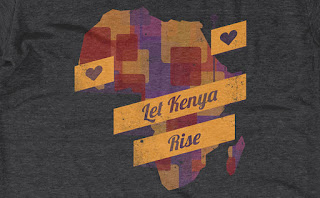My friend Dave Williams, who at the time was working with me as a leader in a summer-long character based leadership development program in Orlando Florida, shared a website with me. On the site, I was exposed to the brutality of child-soldiers in northern Uganda, and I saw the beginnings of one of the most impressive grassroots advocacy movements of young people I have ever witnessed, and I was thoroughly inspired. Less than a year later, representatives of Invisible Children visited the campus of WVU, and dozens in Morgantown and thousands around the country participated in a global night commute in solidarity with children in northern Uganda.
This organization, has catalyzed thousands of young people to take action against global atrocities like the work of Joseph Kony and the LRA in Uganda. I have met many people who trace back their beginnings of advocacy, justice, and community service work to their exposure to Invisible Children. Some of my closest friends have participated multiple times in some of this organization's awareness campaigns. These campaigns were designed to bring more than awareness. They awoke a desire in many for a different kind of world.
Invisible Children, through one of their campaigns, came on Oprah Winfrey's radar, and because of that, came on the radar of millions. They have partnered with many other organizations and agencies, and have encouraged people to write their congressional representatives to take action to end the reign of terror caused by the LRA in Africa. It was because of Invisible Children that I wrote my first letter as a concerned citizen to Robert C. Byrd and Jay Rockefeller, my state's Senators at the time. They encouraged a lobby day in DC that saw over 1000 grassroots lobbyists travel to our nation's capital to advocate for a bill of which Invisible Children played a strong role in its initiation.
And now, President Obama has authorized 100 military advisors to travel to Africa to help local militaries bring an end to 26 years of terror, atrocities, and the abduction of 1000s of children who have been forced to become soldiers. I believe that Invisible Children has played a huge role in encouraging young people to participate in our government's processes, and I believe that for many, it has restored a belief that they can make a difference in this world, they have a voice that can be heard, and they have a role to play as citizen participants in our government as well as in bettering this world.
Today, remember that you have a voice, and you have an incredible opportunity to good in this world, and to help make the world a better place--don't take it for granted!
